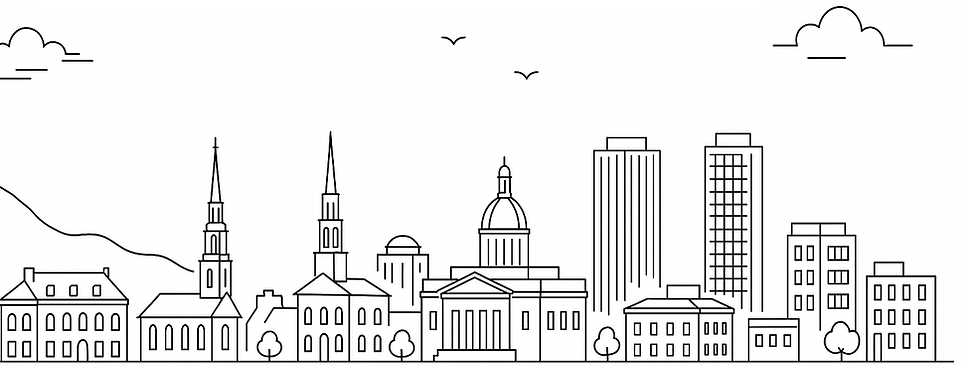
ortheast Regional Honors Council
The Haven of Honors
Cultivating Innovative, Upstanding, and Impactful Leaders
NRHC2026 – March 26-29, 2026
New Haven, CT
NRHC 2026 will be hosted in the historic New Haven, Connecticut. New Haven has long been a place where bold ideas take shape; a city that has repeatedly found itself at the intersection of innovation, education, and justice. Its story reflects the arc of American progress and contradiction.
Founded in 1638, it was to be a haven to individuals seeking religious freedom during a tumultuous period of transition in history. Admittedly, the founding of New Haven contributed to the creation of the social and racial inequities that the United States still grapples with today. For example, New Haven’s many neighborhoods still conform to past economic and racial enclaving. Rethinking and overcoming this social “red-lining” is just one example of how New Haven is an environment and incubator for progress and ingenuity. The challenges that New Haven has faced have pushed the populace to engage in social activism in support of their communities.
The city also played a pivotal role in the American Revolution, serving as a military depot. Further, New Haven’s first mayor, Roger Sherman, is the only person to sign all four documents that laid the foundation creating the United States of America. Currently home to seven colleges and universities, including Yale University and Southern Connecticut State University, New Haven has long been a center for intellectual curiosity. Today, New Haven’s diversity is readily apparent in its food culture. In a square mile in New Haven, one can find a multitude of cuisines ranging from the beloved pizza establishments in the city to Ethiopian, Thai, Greek, Indian, and Cuban (just to name a few).
There is no question—New Haven stands as a symbol of hope, inclusivity, and freedom. This conference site offers not only a backdrop, but a living case study that mirrors the social challenges many cities are facing across the US. Its streets and institutions tell stories of resilience, activism, and transformation. Its legacy reminds us that leadership is not the privilege of a few, but a responsibility of the many, and that honors education is not merely about distinction, but about contribution.
Honors as a Haven
In many ways, honors education mirrors the development of our host city. In its early iterations, “honors” was a space for the elite and privileged. But today, honors education is a welcoming space for administrators, faculty, and, most importantly, students to grow in a multitude of ways. At a time in higher education, where the value of learning and scholarship is being questioned and access is being stifled, it is more important than ever to look to honors as a haven.
Past NRHC conferences have challenged participants to tackle important issues and big questions. This year, we wish to implore you to consider how honors serves as a haven. NCHC’s Shared Principles and Practices state, honors “play[s] a vital role in building a community of scholars and in preparing honors students for leadership roles and professional challenges through which they will exert a positive impact on local, national, and global issues…”
As such, we ask you to explore the process of becoming a leader, as havens are built by leaders in their communities.
We encourage you to consider the following:
-
Honors is a haven for cultivating leadership. Leaders reimagine systems, challenge assumptions, and make space for new voices at the table. Whether the arts, business, technology, natural or social sciences, education, media/communication, among others, we hope to see you examine dynamic forces that create, mold, and challenge leaders. How do leaders choose transparency over convenience, and accountability over avoidance, even though the path is difficult? How do leaders emerge and become forces in their disciplines of study?
-
Honors is a haven for innovation. Our host city has a rich history that creates an environment suitable for creativity and freedom of thought. Creativity is necessary in all facets of life, including research. How can creativity be harnessed in order to lead toward meaningful and tangible change? You can consider how innovation occurs—where do good ideas come from? What does it mean to be original? Can anyone be creative?
-
Honors is a haven for social justice. There is no shortage of ways to delve into this aspect of leadership. What does it mean to be “upstanding”? How can individuals contribute to the greater good? How can we tolerate living in a world where equality isn’t a given and is challenged regularly across the globe?
-
Honors is a haven for impactful and effective practices. Honors educators often carve the pathway for high-impact practices in education, stay ahead of the curve in their disciplines, and serve as mentors to their students. How does impact work? How is one impacted versus how does one make an impact? What are the examples of high-impact practices by educators on students?
These questions are intentionally broad. It is up to you to shape them and find a lens through which you can build a foundation for your presentation. Our disciplinary track descriptions can also serve as inspiration for your proposal. But we also welcome you to forge your own path and presentation for this year’s conference.
